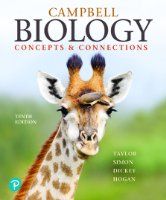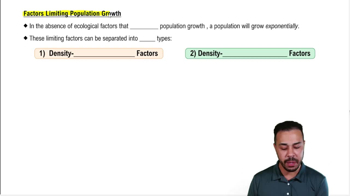In the light micrograph below of dividing cells near the tip of an onion root, identify a cell in interphase, prophase, metaphase, anaphase, and telophase. Describe the major events occurring at each stage.
<IMAGE>

 Taylor, Simon, Dickey, Hogan 10th Edition
Taylor, Simon, Dickey, Hogan 10th Edition Ch. 8 The Cellular Basis of Reproduction and Inheritance
Ch. 8 The Cellular Basis of Reproduction and Inheritance Problem 15
Problem 15 Verified step by step guidance
Verified step by step guidance



In the light micrograph below of dividing cells near the tip of an onion root, identify a cell in interphase, prophase, metaphase, anaphase, and telophase. Describe the major events occurring at each stage.
<IMAGE>
Compare cytokinesis in plant and animal cells.
In what ways are the two processes similar?
In what ways are they different?
Sketch a cell with three pairs of chromosomes undergoing meiosis, and show how non-disjunction can result in the production of gametes with extra or missing chromosomes.
Suppose you read in the newspaper that a genetic engineering laboratory has developed a procedure for fusing two gametes from the same person (two eggs or two sperm) to form a zygote. The article mentions that an early step in the procedure prevents crossing over from occurring during the formation of the gametes in the donor's body. The researchers are in the process of determining the genetic makeup of one of their new zygotes. Which of the following predictions do you think they would make? Justify your choice, and explain why you rejected each of the other choices.
a. The zygote would have 46 chromosomes, all of which came from the gamete donor (its one parent), so the zygote would be genetically identical to the gamete donor.
b. The zygote could be genetically identical to the gamete donor, but it is much more likely that it would have an unpredictable mixture of chromosomes from the gamete donor's parents.
c. The zygote would not be genetically identical to the gamete donor, but it would be genetically identical to one of the donor's parents.
d. The zygote would not be genetically identical to the gamete donor, but it would be genetically identical to one of the donor's grandparents.